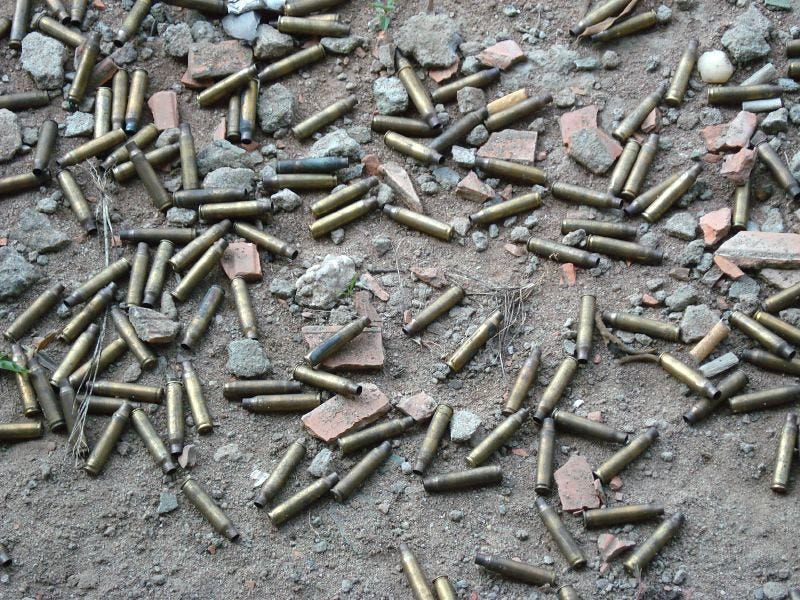
Where can we find hope in this warring world? This is a question I’m asking myself increasingly often, as I read the news in despair.
I’ve been thinking a lot about silences this year: when we are forced into silence, when silence feels safe, when it feels oppressive.
Right now, I don’t feel like I have the words to express the outrage of the thousands of children being starved to death in Gaza. Israel and Palestine; Russia and Ukraine; civil war in Myanmar and Sudan, and the many other conflicts going on in our world – we are watching a violent horror film 24:7 with no happy ending or relief. What can we do as just one person? How can we respond?
“Be still, and know that I am God.” Psalm 46:10.
This verse is often used to promote individual quiet contemplation, yet that’s not what it’s talking about in its original context. The world of Psalm 46 is much like ours. Mountains, symbolic of stability, are shaking and trembling (vv. 2-3). Metaphorically, they echo the volatility of the world:
“The nations are in uproar, the kingdoms totter” Psalm 46:6.
Our world is in uproar, the leaders yell and spit and mock, people die, and it feels like the world’s safety is shifting on tectonic plates, with all the accompanying earthquakes.
Where is the hope?
1. God has not gone anywhere
While everything else shakes, God is unshaken. He is, in fact, the opposite of a James Bond drink: stirred, but not shaken.
For the original writer, the ‘city of God’ (v. 4) that would not be moved (v. 5) would probably have been referring to Jerusalem, but the New Testament updates this to a heavenly Jerusalem, the true city of God, where God dwells into eternity (Hebrews 12:22, Revelation 21:2).
When all else feels like it’s fading around us, particularly those of us who have our security threatened, being told not to fear (v. 2) is a hard ask.
But God is not going anywhere, even if everyone else deserts us and everything else falls apart. Even if it feels like the bad guys are winning everywhere we look, even if we’re having to battle for every small thing, even if hope seems to be diminishing by the day, God is still with us.
When we are feeling attacked, it is still possible to know God as our refuge.
2. God ends wars
This is the original context of “Be still…”
“Come, behold the works of the LORD;
see what desolations he has brought on the earth.” Psalm 46:8
This sounds God’s work is destruction – is God too a warrior, out to get us?
The surprise in the next verse is what God is destroying: destruction itself.
“He makes wars cease to the ends of the earth;
he breaks the bow, and shatters the spear;
he burns the shields with fire.
‘Be still, and know that I am God!
I am exalted among the nations,
I am exalted in the earth.’” Psalm 46:9–10
The command to ‘be still’ is not an invitation to meditation but a call to surrender arms and stop the killing. God destroys the weapons of warfare.
The only illustration I can think of is when my siblings and I were exuberant and occasionally violent children. Fighting over toys seemed the most important thing, right up until we heard steps approaching and the door flung open – and Mum came in. At that moment, we would be utterly still, our fight abandoned: the judge had come. When asked why we were fighting, the reasons never seemed quite so valid after all.
(I don’t think my mother would mind too much the comparison to God.)
Or it’s the opening scene from Romeo and Juliet, where the Capulets and Montagues are merrily and passionately battling each other, and the Prince enters with the immortal words, ‘Throw your mistempered weapons to the ground!’ – and they do.
This is what ‘Be still and know that I am God’ means. It means that armies should immediately surrender their weapons; arrogant leaders acknowledge they don’t have a right to run the world; peace should rule over every nation and God be honoured through this.
Where is hope?
I am using my voice as far as I can: I have written to representatives and given to charities.
But I am also using my silence. The Church of England is using the days between Ascension and Pentecost for a concerted time of prayer. I will be using this time to pray for peace.
God is still God. God still loves peace. God can still makes wars cease. I pray like a wise fool: be exalted among the nations; bring peace, O Lord, I pray.
A Prayer for Times of War and Uncertainty
Dear God,
who makes wars cease,
who turns swords into ploughshares and bombs and guns into pruning hooks,
we pray for peace.
Be exalted, O Lord, in the ending of warfare.
Bring peace to the world and to my own heart. Amen.




Thank you! I am praying for peace, too ❤️
Is there not an English translation which renders verse 10 as 'Stop fighting and know that I am God' - GNB, possibly?